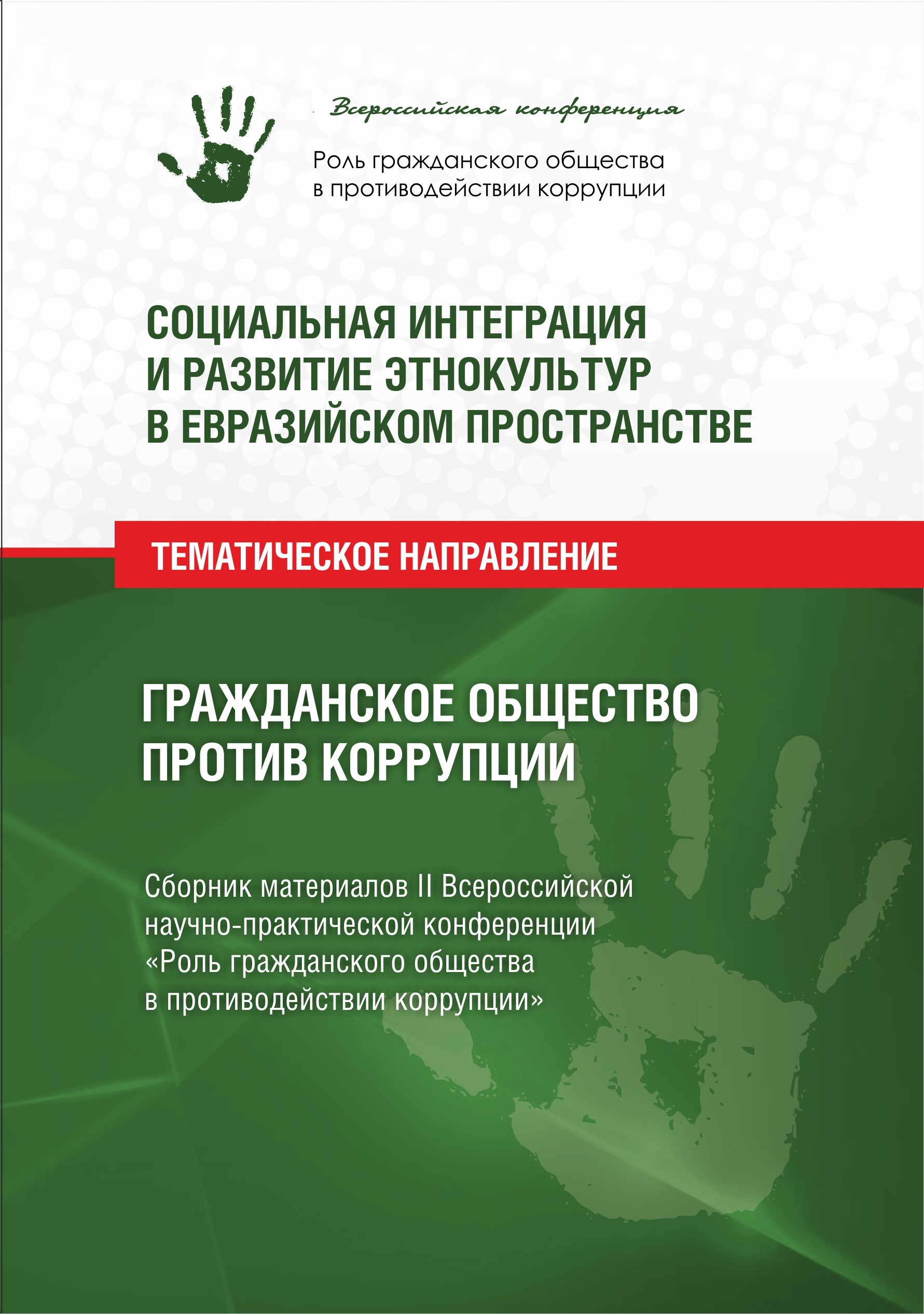PROBLEMS OF CORRUPTION AND CIVIL SOCIETY IN BULGARIA
Main Article Content
Abstract
In order to limit corruption, the world community has developed a number of forms and methods of struggle: administrative and legal (creation of specialized bodies to investigate violations of the law in the field of public services); moral revival of society; government accountability to elected representatives and the mass electorate, etc. However, the results of the modern «struggle between the state and the civil society» in the context of globalization and a unipolar economic model do not show absolute positive dynamics in any of the countries; on the contrary, the index (TI) either fluctuates or falls. The article attempts to approach the explanation of this social phenomenon not from the position of formal regulation, but from the position of: the natural nature of man, due to the limited material resources of the earth, the current economic model and the geopolitical structure of the world, the loss of national sovereignty.
Downloads
Download data is not yet available.
Article Details
How to Cite
[1]
Mukova, L.A. 2020. PROBLEMS OF CORRUPTION AND CIVIL SOCIETY IN BULGARIA. Social Integration and Development of Ethnic Cultures in the Eurasian Space. 1, 9 (May 2020), 48-55.
Section
ГОСУДАРСТВО, ГРАЖДАНСКОЕ ОБЩЕСТВО И КОРРУПЦИЯ

This work is licensed under a Creative Commons Attribution 4.0 International License.
References
Актуален списък на делата във ВКС, свързани с корупционни престъпления (мерки 20 и 21 от Плана за действие за изпълнение на препоръките от Доклада на Европейскатакомисия от януари 2017 г. в рамките на Механизма за сътрудничество и оценка) [Электронный ресурс]. URL: http://www.vks.bg/Press%20Office/dela_op_kp/2019_12_kp_vks.pdf
Антикорупционен фонд, Мерки и институции за противодействие на корупцията според обществените нагласи, [Электронный ресурс]. URL: https://acf.bg/bg/merki-i-institutsii-za-protivodeystvie/
Гегель Г. В. Философия права. М.: Мысль, 1990.
Димов П. Психологически аспекти на корупцията, като заплаха за националната сигурност [Электронный ресурс]. URL: https://www.academia.edu/
Дончева Т. Защо няма да сигнализирам за корупцията? [Электронный ресурс]. URL: https://www.capital.bg/politika_i_ikonomika/obshtestvo/2018/06/17/3200747_zashto_da_signaliziram_za_korupciia/
Закон за противодействие на корупцията и за отнемане на незаконно придобитото имущество //Обн. ДВ. бр.7 от 19 Януари 2018 г.
Европейска комисия, Доклад на Комисията до Европейския парламент и Съвета за напредъка на България по механизма за сътрудничество и проверка, Брюксел, 22.10.2019 [Электронный ресурс]. URL: https://ec.europa.eu/info /sites/info/files/progress-report-bulgaria-2019-com-2019–498_bg.pdf
Исследование Transparency International 2018 [Электронный ресурс]. URL: https://www.capital.bg/politika_i_ikonomika/bulgaria/2019/01/29/3382028_bulgariia_otnovo_e_purva_po_useshtane_za_korupciia_v_es/
Кант И. Антропология с прагматической точки зрения / Перевод Н. М. Соколова [Электронный ресурс]. URL: http://www.bim-bad.ru/docs/kant_anthoropology.pdf
Стойчовска Е. На какво се дължи слабостта на гражданското общество в България [Электронный ресурс]. URL: http://www.omda.bg/public/studentski_forum/grajd_obshtestvo.htm
Труфанов С. Н. Классическое учение Вильгельма Гегеля о человеке: о теле, душе, сознании, самосознании, разуме, интеллекте, воле, свободе. Саарбрюкен, Германия, 2011. 204 с. [Электронный ресурс]. URL: http://lit.lib.ru/t/trufanow_s_n/text_0030.shtml
Антикорупционен фонд, Мерки и институции за противодействие на корупцията според обществените нагласи, [Электронный ресурс]. URL: https://acf.bg/bg/merki-i-institutsii-za-protivodeystvie/
Гегель Г. В. Философия права. М.: Мысль, 1990.
Димов П. Психологически аспекти на корупцията, като заплаха за националната сигурност [Электронный ресурс]. URL: https://www.academia.edu/
Дончева Т. Защо няма да сигнализирам за корупцията? [Электронный ресурс]. URL: https://www.capital.bg/politika_i_ikonomika/obshtestvo/2018/06/17/3200747_zashto_da_signaliziram_za_korupciia/
Закон за противодействие на корупцията и за отнемане на незаконно придобитото имущество //Обн. ДВ. бр.7 от 19 Януари 2018 г.
Европейска комисия, Доклад на Комисията до Европейския парламент и Съвета за напредъка на България по механизма за сътрудничество и проверка, Брюксел, 22.10.2019 [Электронный ресурс]. URL: https://ec.europa.eu/info /sites/info/files/progress-report-bulgaria-2019-com-2019–498_bg.pdf
Исследование Transparency International 2018 [Электронный ресурс]. URL: https://www.capital.bg/politika_i_ikonomika/bulgaria/2019/01/29/3382028_bulgariia_otnovo_e_purva_po_useshtane_za_korupciia_v_es/
Кант И. Антропология с прагматической точки зрения / Перевод Н. М. Соколова [Электронный ресурс]. URL: http://www.bim-bad.ru/docs/kant_anthoropology.pdf
Стойчовска Е. На какво се дължи слабостта на гражданското общество в България [Электронный ресурс]. URL: http://www.omda.bg/public/studentski_forum/grajd_obshtestvo.htm
Труфанов С. Н. Классическое учение Вильгельма Гегеля о человеке: о теле, душе, сознании, самосознании, разуме, интеллекте, воле, свободе. Саарбрюкен, Германия, 2011. 204 с. [Электронный ресурс]. URL: http://lit.lib.ru/t/trufanow_s_n/text_0030.shtml

